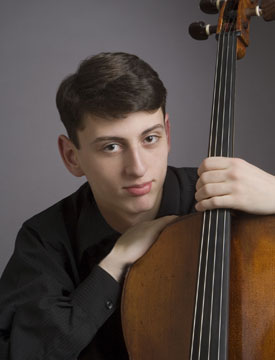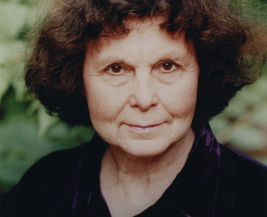Classical Music Review: Boston Chamber Music Society Reels in a Big Catch
BSCP has enough cachet to hire the best in the business—each of the evening’s soloist had instruments and resumes to, as they say, die for—competitions won, festivals performed in, prizes, solo performances everywhere but the South Pole.
By Susan Miron
There were two musical oddities and a Big Catch on The Boston Chamber Music Society’s opening program in Sanders Theatre at Harvard University on October 16. The Big Catch was the appearance of the once-local student and now international superstar, Narek Hakhnazaryan. This was Mr. Hakhnazaryan’s first Boston appearance since winning the Gold Medal at the ultra-prestigious Tchaikovsky Competition in Moscow recently. He had just finished his Artist Diploma at New England Conservatory under cellist Laurence Lesser a few months earlier. So it was a pleasure to hear a greatly gifted musician at the ripe old age of 22.
The Boston Chamber Music Society (BCMS) tries to mix well-known and lesser works on each of its concerts and certainly succeeded in their mission in this concert. A well-known Mozart Piano Trio (K. 502 in B-flat major) opened the program, with guests Jennifer Frautschi, violin, Mr. Hakhnazaryan, cello, and Mihae Lee, piano. Ms. Lee, a BCMS member since 1987, is simply brilliant. She played just as wonderfully in each of the evening’s four pieces, and a lion’s share of the credit for this concert’s excellence belongs to her. She is a very spirited performer and performed each piece with great style and elan.
One of the evening’s oddities came next—Charles Loeffler’s (1861–1935) “Four Poems,” Opus 5. BSCP has enough cachet to hire the best in the business—each of the evening’s soloist had instruments and resumes to, as they say, die for—competitions won, festivals performed in, prizes, solo performances everywhere but the South Pole. Still, I was underwhelmed by Krista River, the mezzo-soprano in the Loeffler.
In fairness, although she did not adequately communicate what the songs were about, it wasn’t entirely her fault. If you have songs on a program, you simply must—if they are in French—print the texts in BOTH French and English as an insert or in the program booklet itself. It is not fair to the singer to have her audience depend on scant program notes, especially when the songs are rarely performed. Loeffler’s Two Rhapsodies for Oboe, Viola and Piano is far more popular.
Loeffler was the assistant concertmaster in the Boston Symphony Orchestra for over 20 years (his brother played in the cello section) and was quite taken with French poetry. Three of these songs were set to texts of Paul Verlaine and the other to a text by Charles Baudelaire. The music hinted strongly at the French Impressionism, which would hold such sway 20 years later.
Finally, the pieces many of us had come to hear—Robert Schumann’s (1810–1856) charming “Fantasiestücke,” Opus 73. These deeply personal three pieces written in 1849 were actually written for clarinet with the option of being played on violin or cello. Unlike some pieces written for clarinet, the Brahms sonatas for example, these pieces, I think, sound better on cello. Narek Hakhnazaryan played them as if in a dream, his eyes closed, his body still, his shirttails out, cuffs rolled up on his left arm, collar open. This was unfussy playing at its best, the musical sounding completely natural, drawing attention to the music rather than to himself. It was beautiful playing, and there is no doubt in my mind that he deserves, and will receive, a great career.
The BCMS has a great idea for this season—piano quintets. This will include those by Schumann (November 20), Franck (March 25), Brahms (April 29), and Schubert (“The Trout” on May 13). Tonight’s quintet was surely one no one in the audience (or the Boston area) has heard—the early Piano Quintet (1957) by the renowned Sofia Gubaidulina (b. 1931) in which violist Roger Tapping (who had played the Loeffler) and BCMS member violinist Ida Levin (who played first violin and who was very impressive) joined Mr. Hakhnazaryan, Ms. Lee, and Ms. Frautschi.
Ms. Gubaidulina, one of today’s leading composers, was still a student at Moscow Conservatory when she composed this, and much of it sounds like prettified Shostakovich, Soviet Lite, full of cleverness and charm. The Quintet got a impassioned performance from a very impressive quintet of players.


